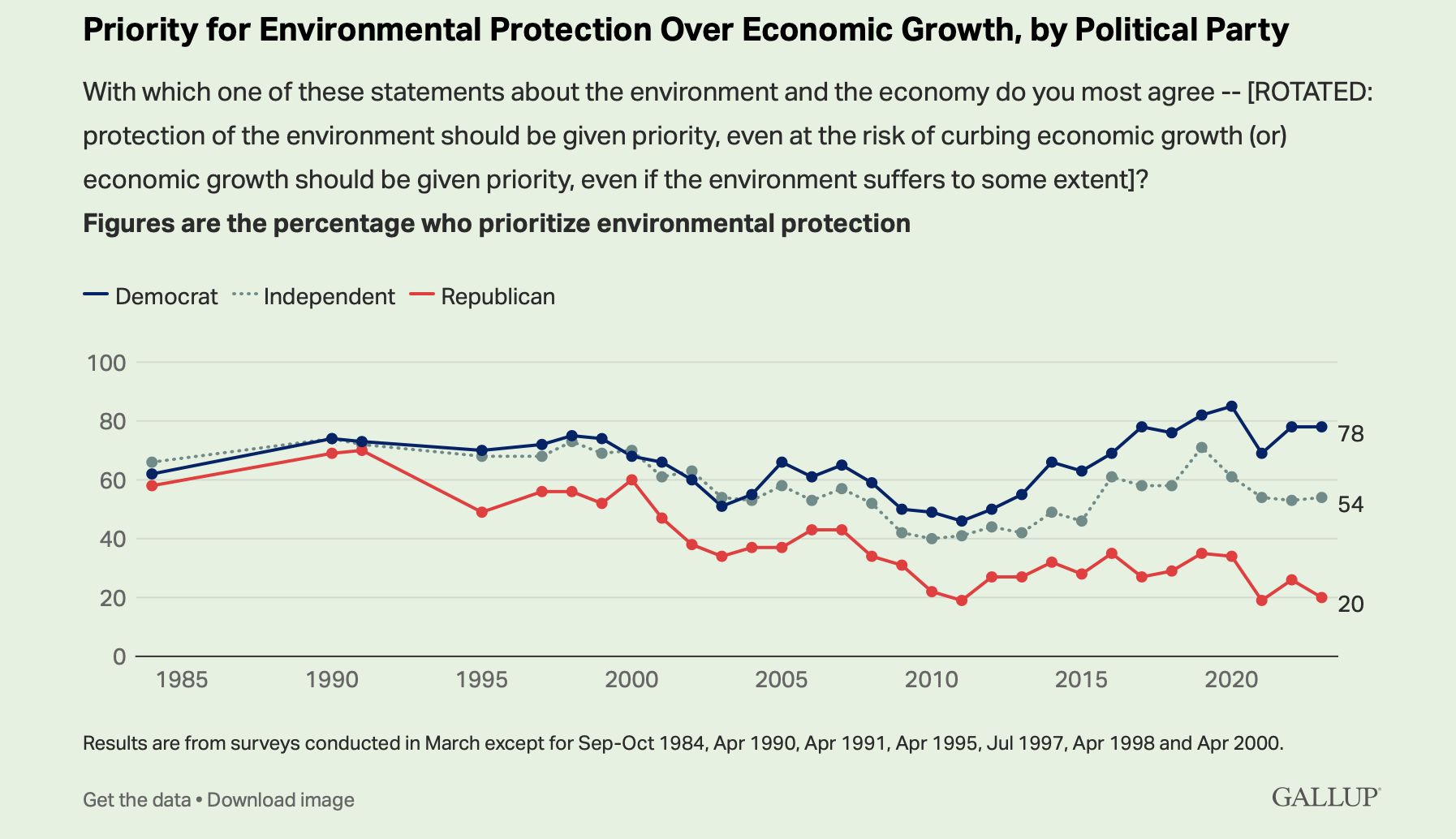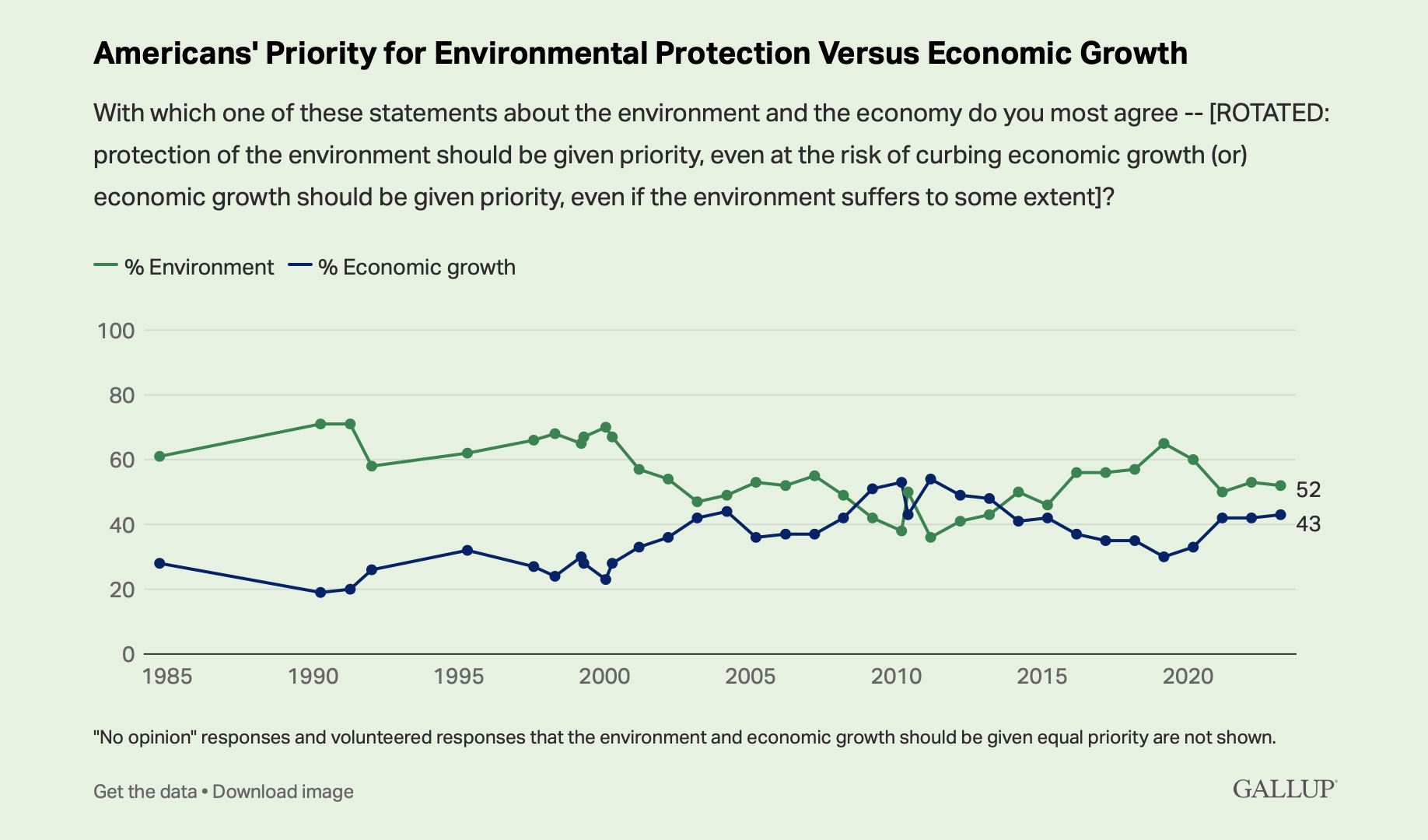On this year’s Earth Day, the gap between Republicans and Democrats on environmental protection is wider than the ozone hole in the earth’s atmosphere.
Gallup reports “the gap between the parties has never been larger” when asked to consider tradeoffs between economic growth and environmental protection. That is a real-life question because in some cases, what’s good for short-term financial profit is bad for long-term creation care.
Today, 78% of Democrats believe environmental protection should be given higher priority than economic growth. Only 20% of Republicans share that view.
“From 1984 to 1991, the parties expressed similar views on this matter, but by 1995 a divide became evident, which has since gradually expanded,” a new Gallup report explains. “At least half of Democrats have favored the environment over economic growth in all years of Gallup’s trend except during the economically challenged years of 2010 and 2011. Meanwhile, majorities of Republicans typically prioritized the environment from 1984 through 2000, but Republicans have not returned to that level since falling to 47% in 2001.
The results are based on Gallup’s annual environment survey, conducted March 1-23.

The pro-economy figure for Republicans is the highest Gallup has measured to date, it said, and the 57-point gap between the parties is also the largest on record.
The latest Gallup report did not consider religious affiliation as a factor in attitudes toward environment versus economy.
Nationwide, a majority (52%) of Americans believe environmental protection should take priority over economic growth and 43% take the opposite view.
Gallup explains the context of its data: “The environment is increasingly a source of partisan division in the U.S. In the early 1990s, when the environmental movement experienced a revival, it was an issue on which Republicans and Democrats exhibited consensus. But that changed a few years later, around the time of the 1994 Republican revolution that saw the party gain control of both the House of Representatives and Senate for the first time in four decades. That may have come as a backlash against the policies put forth by Democratic President Bill Clinton and the Democratic-controlled Congress. Party polarization on the environment has only grown since then, reaching record highs today.”

Related articles:
National Association of Evangelicals joins call for attention to climate change


